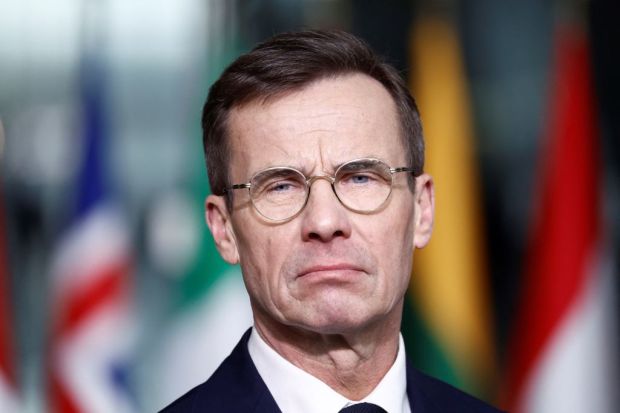The BBC’s 50:50 project is designed to empower women. One of its targets is to ensure that half of the contributors are female. But while this aim might have been questionable from the outset – is this really something the BBC should be focusing on? – its mission has been undermined: the BBC has admitted it does ‘not monitor whether a contributor’s gender differs from their sex registers at birth’.
In effect, trans women, who were born as male, will be counted as women. ‘The BBC has now ‘disappeared’ women as a sex class and instead monitors ‘gender identity’,’ fumed one senior BBC insider, one of many Corporation staff who have protested about the change.
With the ascendancy of the trans debate, there are vast numbers of Brits who worry about the plight of women today, and indeed the very existence of the category ‘women’ in the eyes of society. There are many men who sympathise not merely on rational and intellectual grounds; we also observe the unfolding vicissitudes of today’s gender and sex wars vicariously, through the eyes of our mothers, sisters, daughters and nieces. Unfortunately, in this case, it’s hard to sympathise.
Rather than decry the fact that those born with a penis and with XY chromosomes can now pass themselves off as women, it should have been asked why it was deemed rational and fair in the first place to accord 50:50 representation on the airwaves according to genitals and chromosomes. There’s nothing progressive or judicious about quotas which have their foundation in physiognomy and dangly bits randomly assigned by nature.
The 50:50 project also seeks to monitor gender, ethnicity and disability of phone-in show callers, the reporters and experts on BBC News, the quotes on the BBC website and musicians in orchestras. While superficially designed to ensure visibility (and audibility) of weaker or disadvantaged members of society, this ‘project’ is patronising. It reinforces the belittling and sometimes soul-destroying notion that some sections of society are powerless and helpless.
Do women really need a helping hand in the BBC, where their voices are more than amply catered for (such as Radio 4 during the daytime, where and when men seem to barely exist)? Writing in the Sunday Telegraph yesterday (as it happens, in reference to the suggestion to proscribe wolf-whistling) Zoe Strimpel said of paternal legislation to protect women: ‘It just chips away at women’s sense of confidence as agents of liberty in the world. We are not powerless and we are not, by dint of our birth, victims.’
Ethnic minorities can feel equally alienated and humiliated by caring, condescending attitudes. A recent report by the American Psychological Association (APA) found that minority applicants for jobs often felt put off by company mission statements that position diversity as good for business: when people read business-case diversity statements they reported feeling less likely to want to be employed by that company. Participants were concerned that these companies would ‘see and judge them, as well as their work, in light of their social identity.’
Any quota to protect or empower women or ethnic minorities looks ironic and even absurd when, of the two people vying to be this country’s next prime minister, one is a woman and the other is of an ethnic minority.
As with all mindless, myopic, bureaucratic bean-counting, all that quotas do is foster resentment and aggravate divisions in society. In America, for instance, affirmative action programmes have led to the great deterioration of intra-ethnic relations between African-Americans and Asians. This is hardly surprising. Quotas offend the inherent human aversion to unfairness, that those who do the best should be rewarded accordingly.
This is why ‘privilege’ is looked down upon across the board: we don’t like it when people get ahead, or are kept behind, on account of what they are – according to what subset of society they belong to – rather than who they are. This is why so many people dislike Black Lives Matter, a movement that they see as deprecating white people as guilty in some way because of their ancestry and pigmentation.
It’s all very well to complain that the proper etiquette of the 50:50 project is being abused, that the inclusion of biological males under the category ‘women’ is unfair. But the best solution to this problem is to abolish this injudicious system in the first place.
Got something to add? Join the discussion and comment below.
Get 10 issues for just $10
Subscribe to The Spectator Australia today for the next 10 magazine issues, plus full online access, for just $10.




















Comments
Don't miss out
Join the conversation with other Spectator Australia readers. Subscribe to leave a comment.
SUBSCRIBEAlready a subscriber? Log in